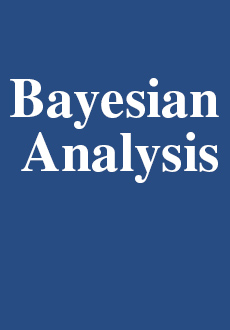Abstract
In spatial statistics, it is usual to consider a Gaussian process for spatial latent variables. As the data often exhibit non-normality, we introduce a novel skew process, named hereafter Gaussian-log Gaussian convolution (GLGC) to construct latent spatial models which provide great flexibility in capturing skewness. Some properties including closed-form expressions for the moments and the skewness of the GLGC process are derived. Particularly, we show that the mean square continuity and differentiability of the GLGC process are established by those of the Gaussian and log-Gaussian processes considered in its structure. Moreover, the usefulness of the proposed approach is demonstrated through the analysis of spatial data, including mixed ordinal and continuous outcomes that are jointly modeled through a common latent process. A fully Bayesian analysis is adopted to make inference. Our methodology is illustrated with simulation experiments as well as an environmental data set.
Citation
Hamid Zareifard. Majid Jafari Khaledi. Firoozeh Rivaz. Mohammad Q. Vahidi-Asl. "Modeling Skewed Spatial Data Using a Convolution of Gaussian and Log-Gaussian Processes." Bayesian Anal. 13 (2) 531 - 557, June 2018. https://doi.org/10.1214/17-BA1064





